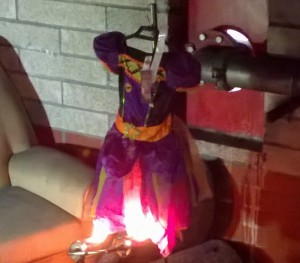Fire officers are issuing Black Friday safety tips to shoppers, to stop them getting duped by dodgy goods online.
South Yorkshire Fire & Rescue (SYFR) is pointing to figures from Electrical Safety First, which show more than one million people bought fake goods in the UK last year.
The majority of those goods were bought online, with shoppers regularly misled by images stolen from official sites, fake safety marks or near to authentic pricing.
Counterfeit electrical products are particularly risky as they often contain faulty parts that can overheat and catch fire or deliver a fatal electric shock.
SYFR Area Manager Steve Helps, said: “Thousands of people will be using tempting black Friday deals to hunt for a tech bargain online, but we know that these often pose a serious risk of fire. Fake goods aren’t always easy to spot, but it’s well worth taking the time to consider the authenticity of a purchase.
“Electrical equipment causes a third of all the house fires we attend and in the UK last year electrical fires killed 50 people and injured 3,000 more.”
How to spot fake electrical products online
- If the price is (almost) right, it’s probably fake
Some counterfeits are for sale just below the recommended retail value, hoodwinking shoppers that are too savvy to fall for the ‘too good to be true’ deals. Make sure you do your homework if you decide to buy products below high street retail prices. - Don’t just take the seller’s word for it – or the reviewers
Beware of a product with solely glowing reviews, especially if the reviewers aren’t verified. Some sites cross-reference user reviews with their buyer database and label those people as “verified purchasers”. - Know where you’re buying from
Make sure you know where the supplier is based, a ‘co.uk’ URL doesn’t guarantee the website is UK based. If there is no address supplied, or there is just a PO Box, be wary; many counterfeit electrical goods are manufactured overseas, where they will not be safety tested and are produced as quickly and cheaply as possible. - Beware of words qualifying an item’s authenticity
If the seller claims the product is ‘genuine’, ‘real’ or ‘authentic’ double check the source. Most reputable retailers don’t need to sell their products like this. - Spot the lock to pay safely
Look for websites that allow you to pay safely – these have a padlock symbol at the bottom of the screen when you are filling in your payment details. If you can’t see it, do not enter your payment details.
For more home fire safety advice visit www.syfire.gov.uk/safety-advice

